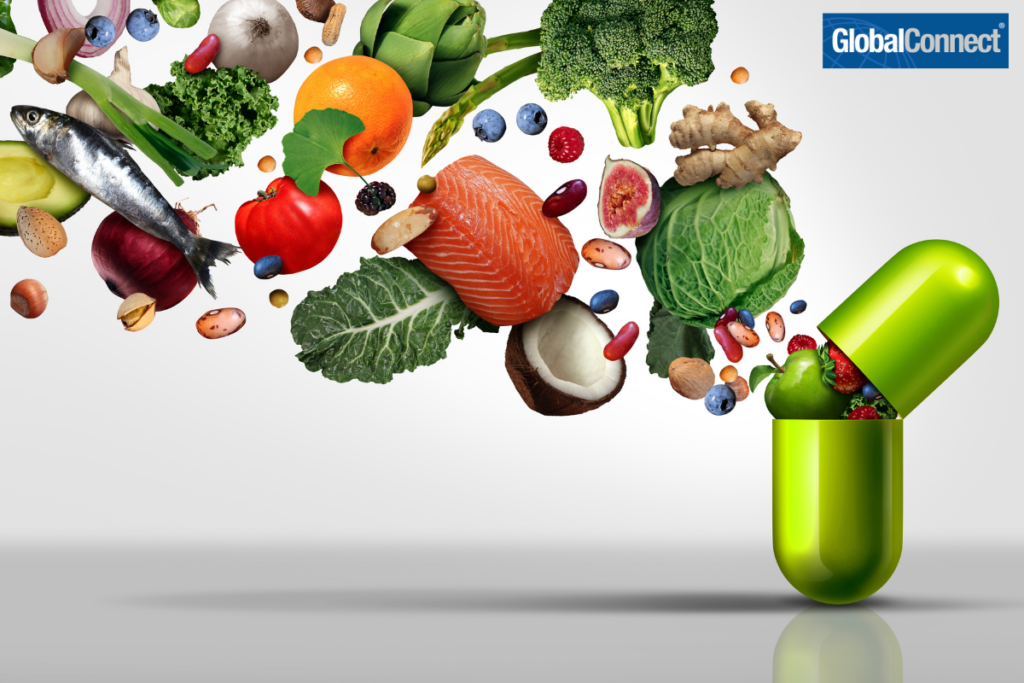Walk into any drugstore or big box store, and you can find at least one full aisle dedicated to dietary supplements. Products like vitamins, minerals, probiotics, herbal products, weight loss supplements, fish oil capsules, and various other pills, powders, and drops all promote the promise of better health, less illness, weight management, more energy, or better sleep.
But these over-the-counter (OTC) supplements are often not safe for some people, as they can interfere with certain medications or health conditions, nor are they necessary for everyone. If you’re already eating a nutritious diet with a variety of healthy foods, you are likely getting all of the nutrients your body needs. However, there are instances where certain supplements can fill in the gaps in your diet or help with diagnosed vitamin deficiencies or certain medical conditions, but you should only take these on the advice and under the care of a doctor.
Not all supplements are created equal.
Supplement safety
Dietary supplements are regulated as foods, not as drugs, by the U.S. Food and Drug Administration (FDA). These products may claim that they provide specific health benefits, but legally, they cannot claim to cure, treat, or prevent any disease. Because supplements aren’t considered drugs, they aren’t put through the same rigorous safety and effectiveness reviews and regulations that drugs are.
To put it simply, The FDA considers new drugs to be considered unsafe until they are proven safe: both prescription and OTC medications are put through extensive clinical trials (which can take years) before being approved by the FDA. On the other hand, dietary supplements are considered safe until they’re proven not to be safe. Supplement manufacturers are not required to test their products in clinical trials that would identify potential drug interactions and health risks as drugs are.
There has been a history of unsafe products in the dietary supplement industry. In the 1990s, the stimulant ephedrine, which was used in many weight loss and energy supplements, was linked to organ damage and death. It was eventually banned in 2004. More recently, the banned ingredient, methylsynephrine, was found in many supplements that did not list it on the label. The substance can cause vomiting, agitation, and cardiac arrest, yet was found in 14 out of 27 brands of supplements.
Many supplements are marketed as “natural,” but this does not necessarily mean they are safe. Certain herbs like kava and comfrey, for example, can cause liver damage, while stimulants like green tea can increase heart rate.
Should you take supplements?
If you’re regularly eating a varied, healthy diet, you probably don’t need to take any extra supplements. If you have been tested by your doctor and shown to be deficient in certain vitamins or minerals, or maybe you take medications that decrease specific vitamin absorption in your body, you may benefit from taking certain dietary supplements. There are other instances where supplements are recommended: for women post-menopause who need additional calcium to protect their bones, and pregnant women who need folic acid to reduce the chance of birth defects in their babies. There are some supplements that can be beneficial to your health if taken correctly and under the supervision of your doctor. These include the following:
- Vitamin D – Vitamin D deficiency has recently been linked to an increased risk of viruses and other infections, and there are studies that suggest higher levels can help prevent other diseases. Many people do not get enough Vitamin D through diet alone, and relying on sun exposure alone is often not sufficient and comes with its own risks of an increased risk for skin cancer.
- Vitamin B12 – Can help keep your nerve cells and blood cells healthy, and is helpful in preventing anemia.
- Folic acid – Pregnant women need high levels of folic acid to help prevent birth defects.
- Calcium – Can strengthen bones and keep bones healthy as you age.
- Vitamins C and E – Can prevent cell damage.
- Fish oil – Can promote heart health.
- Vitamin A – Can help slow down vision loss due to age-related macular degeneration.
- Zinc – Can promote skin health and also slow down vision loss due to macular degeneration.
Smart Supplement Shopping
If your doctor has recommended you take a dietary supplement, be sure to choose wisely when shopping.
- If you’re purchasing supplements online, only buy from credible websites. Don’t just do a blind search for supplements, but use credible online merchants only. It is better to purchase supplements from large retailers as they are more likely to carry brands that are safer and don’t contain unidentified ingredients.
- Be skeptical of false claims for dietary supplements. Language such as “works better than a prescription drug,” or “100% safe,” or “no side effects” should be red flags.
- Just because a supplement is promoted as “natural” does not mean it is safe.
- Ask your doctor to help you determine the best brand of supplement to buy for your specific needs.
